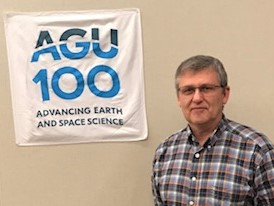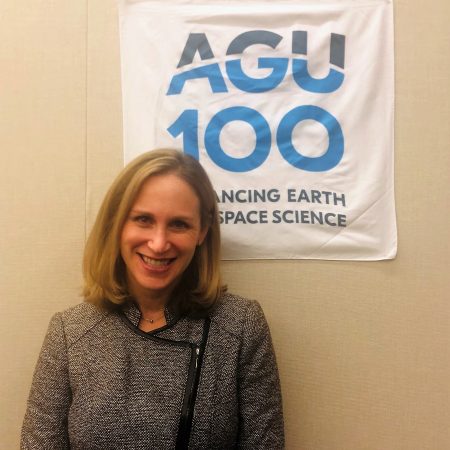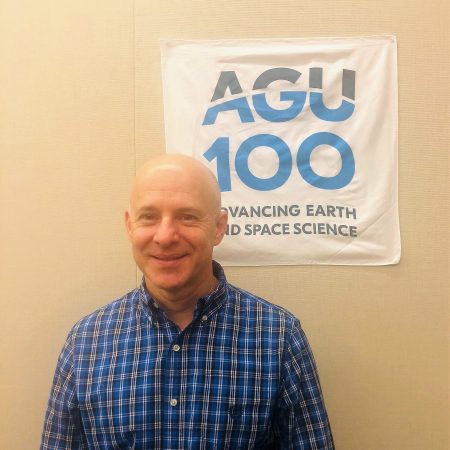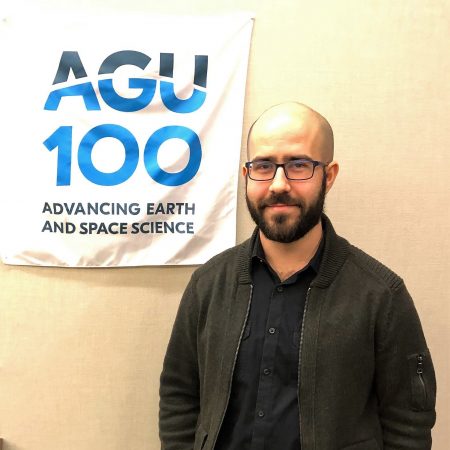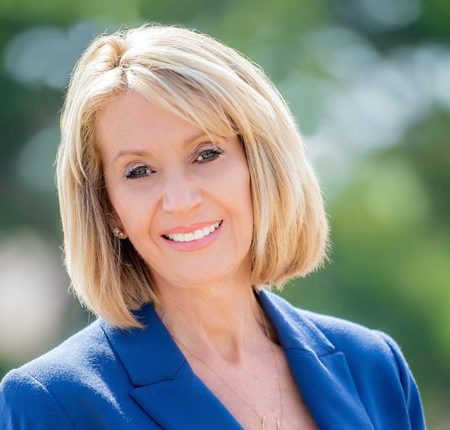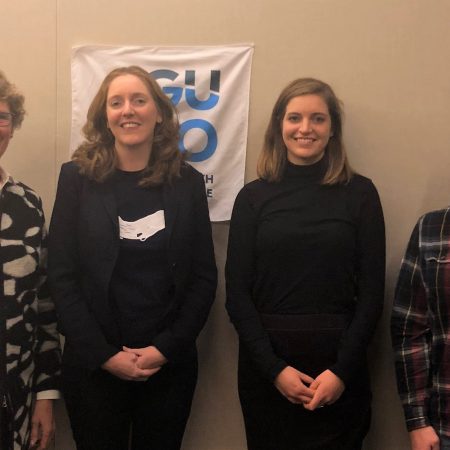Refine
Date Range Clear
Recorded by Clear
Keywords Clear
Partnerships Clear
- No matching terms.
Organizations Clear
- American Geophysical Union 6
- National Aeronautics and Space Administration 3
- Ameican Geophysical Union 1
- Ameican Geophysican Union 1
- American Geophsyical Union 1
- 2 more
Places Clear
Languages Clear
- No matching terms.
Initiatives Clear
- No matching terms.
Through his work with SERVIR, Ashutosh Limaye could be described as one of Earth’s watchdogs. The project scientist at the Marshall Space Flight Center’s job is to take NASA satellite data back down to the Earth and help people use...
Paul Stackhouse is a sun chaser, but in his case it means measuring the surface radiation budget. This means figuring out how much sunlight gets to the surface of the planet, and takes a deep understanding of factors like cloud...
In research, Dalia Kirschbaum literally seeks landslide victories, though in her case this entails finding disasters. The research scientist at NASA’s Goddard Space Flight Center uses satellite monitoring to get clear predictions about actual landslides through satellite information. “My work...
Daniel Irwin’s first direct connection with NASA started in the small town of Flores in Guatemala. Amidst work dodging snakes and spiders in the jungle, he had a chance encounter with a researcher who handed him satellite mapping images of...
Dr. David Lagomasino, assistant research professor at the University of Maryland and researcher at the NASA Goddard Spaceflight Center, discusses his life in science, studying coastlines and the effects of sea level rise, erosion, deforestation, and other factors on complex...
Amber Soja’s career is on fire. The resident at NASA’s Langley Research Center studies fire regimes and how they are being affected by climate change. “Every fire season is worse,” she says, adding that the changing fire regime is proof...
James Famiglietti, hydrologist and Director of the Global Institute for Water Security, University of Saskatchewan, discusses his work with NASA's Gravity Recovery and Climate Experience (GRACE) and the evolution of technology throughout his career including its impact on water security....
You may know Marcia McNutt as the current president of the National Academy of Sciences, but did you know she’s also someone who got restless enough to give up what many consider the be the perfect job? While teaching at...
John Bolten doesn’t need to get his hands dirty to learn about crop yields. Using satellite images, the Associate Program Manager of Water Resources for the NASA Applied Sciences Program has worked with the U.S. Department of Agriculture to directly...
What starts as a conversation about arctic change is actually an all-encompassing discussion about career growth, patience, and personal growth. Walt Meier, National Snow, and Ice Data center, introduces us to Jackie Richter-Menge, US Arctic Research Commission, who has spent...
![“[Better satellite monitoring] will improve our ability to bridge the gaps between the haves & have nots." interview with Ashutosh Limaye](https://archive.storycorps.org/uploads/2019/02/181213_Limaye-450x450.jpg)
